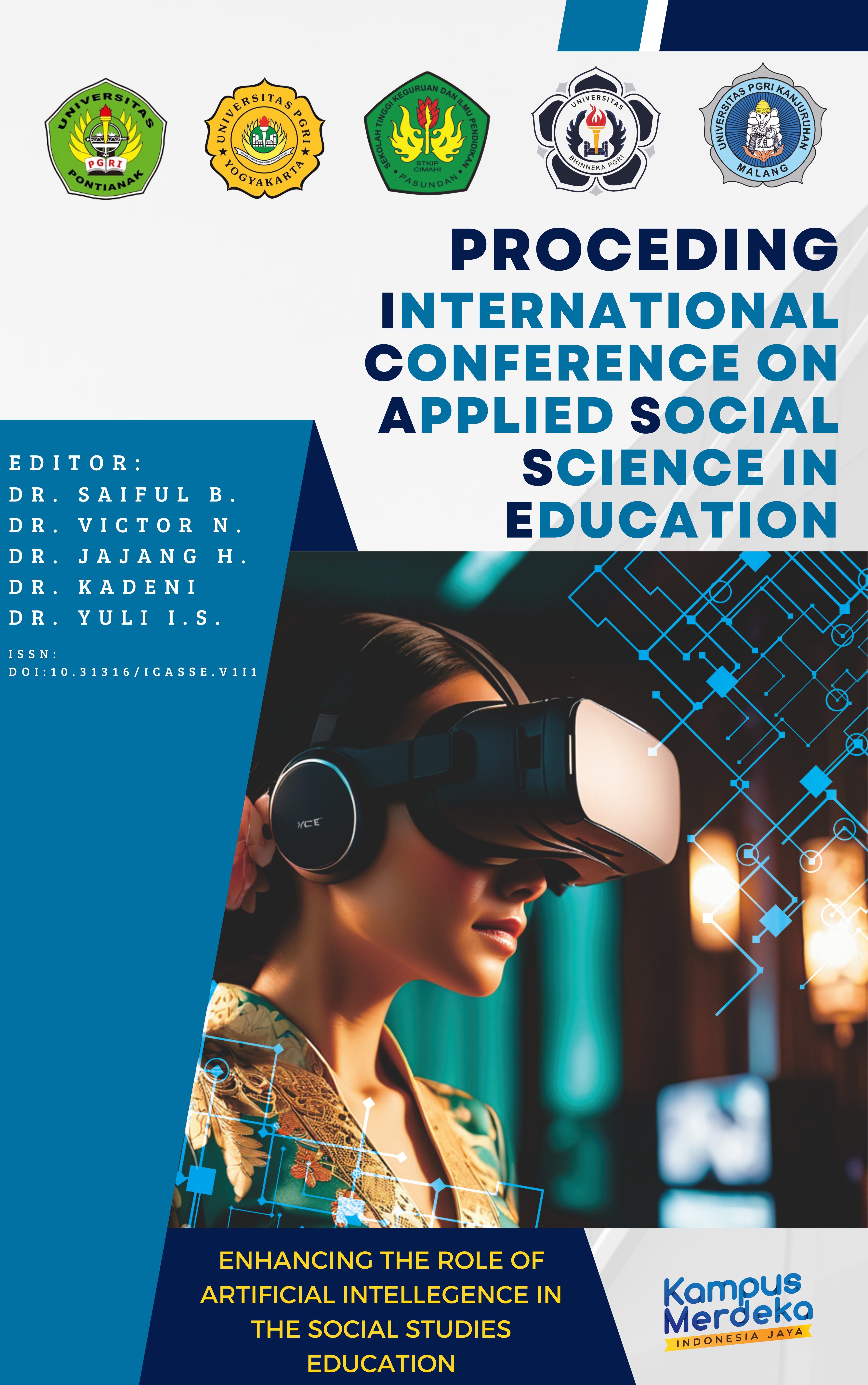THE FUTURE OF IPS LEARNING: THE POTENTIAL AND CHALLENGES OF IMPLEMENTING AI IN THE CLASSROOM
DOI:
https://doi.org/10.31316/icasse.v1i1.6864Abstract
Abstract
This research aims to explore the potential and challenges that arise in the application of artificial intelligence in Social Science learning in the classroom environment. Amidst the rapid development of technology in the digital era, artificial intelligence has become a vital component in transforming learning methods by providing innovative solutions that enable personalization and adaptation of materials to the specific needs of each student. Through a qualitative desk research approach, this study combines in-depth description and analysis to evaluate the data obtained. Data were collected from various sources, including articles, academic journals, and books, which were then analyzed using the interactive data analysis method, which includes data reduction, data presentation, and conclusion drawing stages. The findings of this study reveal that the application of artificial intelligence in social studies learning is not only effective in improving student learning outcomes but also able to create a more personalized and adaptive approach. Artificial intelligence facilitates the accelerated adoption of technology in education, replacing traditional learning methods with approaches that are more dynamic, interactive and relevant to the needs of today's students. However, this research also highlights challenges that need to be addressed, including issues of student data privacy and security, as well as the risk of over-reliance on technology. Thus, strict policies and ethical considerations are necessary to ensure that artificial intelligence can be applied responsibly and sustainably, thus creating an effective, safe, and relevant learning environment in the digital era.
Keywords: Artificial Intelligence, Potential, Challenges and Social Science.





